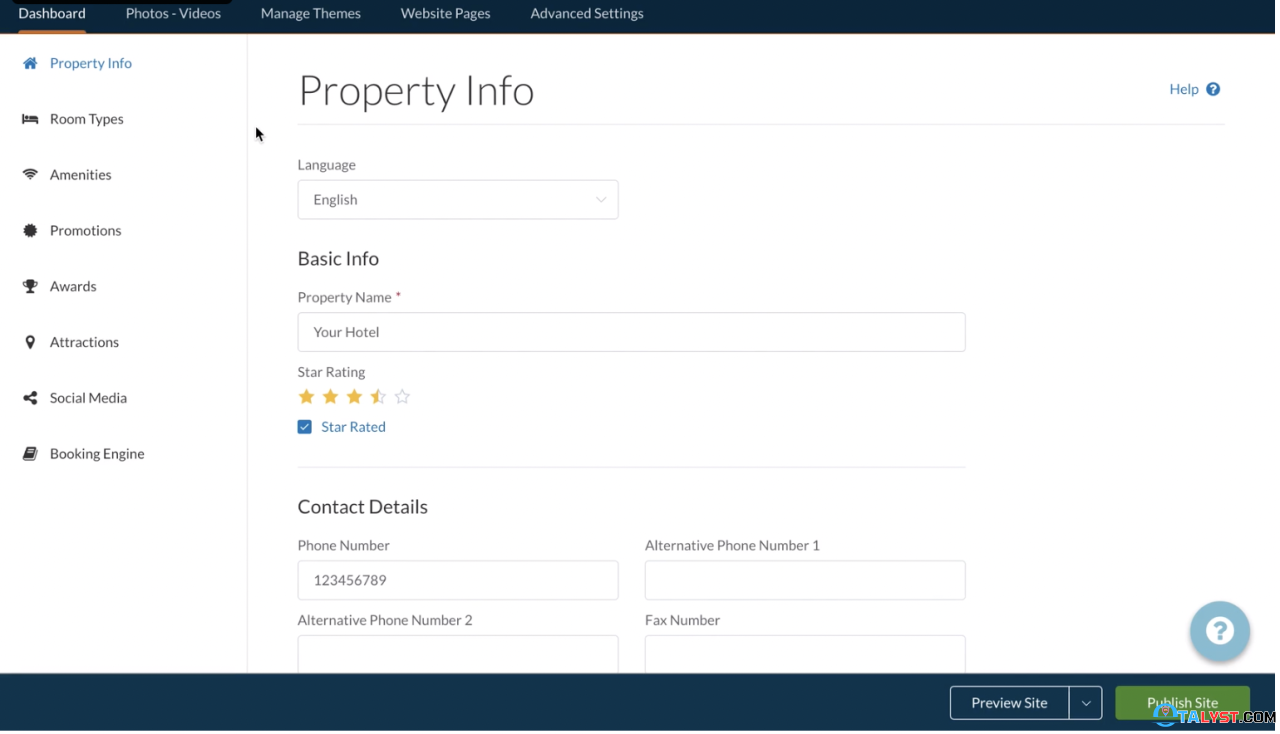Having a hotel content management system (CMS) is akin to cultivating a lush garden if you aim to enchant travelers with your brand and harvest a bounty of direct bookings online. Just as a garden without proper care and organization appears unkempt and lacks allure, a website devoid of aesthetically pleasing and well-organized content exudes unprofessionalism. Moreover, it becomes a labyrinth for potential guests seeking information, often resulting in a multitude of abandoned bookings.
Similar to how a diligent gardener tends to their garden, a content management system nurtures your hotel website, enhancing its design, functionality, and utility. Remarkably, it accomplishes this feat at a modest cost while also sparing you precious time. As a proprietor of a small property, you likely operate within a constrained budget, necessitating judicious allocation of resources beyond the realm of website setup, maintenance, and editing. Herein lies the beauty of a hotel CMS: it empowers you to effortlessly update your website on the fly, obviating the need to engage a website developer for the creation of essential elements. Over time, this prudent investment not only conserves substantial time and money but also yields a flourishing digital presence that beckons travelers to explore and book directly with ease.
What is a hotel CMS?
A hotel CMS is a content management system that allows you to manage your hotel website easily, without any technical skills such as coding.
‘Content’ includes all the elements of a website – pages, images, text, and videos. With a good CMS, you can organise all of these elements easily and quickly with no website design experience.
Hotel content management systems also make it simple to manage and modify your content whenever you want. For example, you can instantly update hotel room images without incurring any extra costs.
How does a CMS for hotels work?
A hotel CMS will usually have templates, themes, and plug-ins available for you so that you can make your website content appealing and unique.
You simply need to upload your images, text, videos, links, and the system will organise it based on the theme or template you have chosen. If you need additional pages or sections, such as a blog it also makes it easy to add these and customise them.
There’s no need for you to type code or understand any of the technical aspects of the process. Add your content as you want visitors to your site to see it, and it will appear!

Hotels should consider using a Content Management System (CMS) for several compelling reasons:
- Ease of Content Management: A CMS makes it simple for hotels to manage their website content without requiring technical expertise. Hotel staff can easily update information about rooms, amenities, rates, and promotions, ensuring that their website remains current and engaging for visitors.
- Flexibility and Customization: CMS platforms offer a high degree of flexibility and customization options, allowing hotels to tailor their website design and functionality to reflect their brand identity and meet the specific needs of their guests. From choosing templates and layouts to adding custom features, hotels can create a unique online presence that sets them apart from competitors.
- Search Engine Optimization (SEO): CMS platforms often include built-in SEO features and plugins that help hotels improve their search engine rankings and attract more organic traffic to their website. These features may include meta tags, XML sitemaps, canonical URLs, and optimized page structures, which can all contribute to higher visibility in search engine results.
- Mobile Responsiveness: With the increasing use of mobile devices for travel research and booking, it’s essential for hotels to have a website that is optimized for mobile users. Many CMS platforms offer responsive design capabilities, ensuring that hotel websites look and perform well across various screen sizes and devices.
- Integration with Booking Systems: A CMS can seamlessly integrate with booking engines and reservation systems, allowing hotels to accept direct bookings through their website. This integration streamlines the booking process for guests and helps hotels maximize revenue by reducing reliance on third-party booking channels.
- Analytics and Reporting: CMS platforms often include built-in analytics tools that provide valuable insights into website performance, user behavior, and conversion rates. Hotels can use these analytics to track the effectiveness of their marketing efforts, identify areas for improvement, and make data-driven decisions to optimize their online presence.
- Cost-Effectiveness: Many CMS platforms offer affordable pricing plans and eliminate the need for costly custom website development. By choosing a CMS, hotels can save time and money while still benefiting from robust website functionality and professional design.
Overall, a CMS provides hotels with the tools and capabilities they need to create, manage, and optimize their online presence effectively. Whether it’s updating content, attracting more visitors, or increasing direct bookings, a CMS can help hotels achieve their digital marketing goals and stay competitive in the hospitality industry.
Tools like PMS (Property Management System) and CM (Channel Manager) only assist lodging establishments in operating more simply, saving time, and being more efficient compared to not using them. However, that is not the root of growth or the challenges faced in the accommodation business. If you want to effectively manage OTA channels and create stable growth, you should have a clear understanding of how OTA platforms operate, such as their nature, operational models, and how they display, calculate displayed prices, and collect prices (after deducting commissions). Of course, larger hotels that want to approach it systematically will do it synchronously from the beginning, but smaller lodging establishments wanting to reduce operational costs should overlook it and focus on optimizing display and providing outstanding customer care.
Synthesized by: OTA Lyst












































